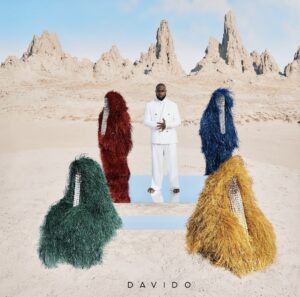Qing Madi, the rising music artist, has recently dropped her highly anticipated album titled I Am the Blueprint. The album’s release was met with excitement from fans. However, it also triggered some controversy after a critique from talent manager Ife Diran sparked a heated debate online.
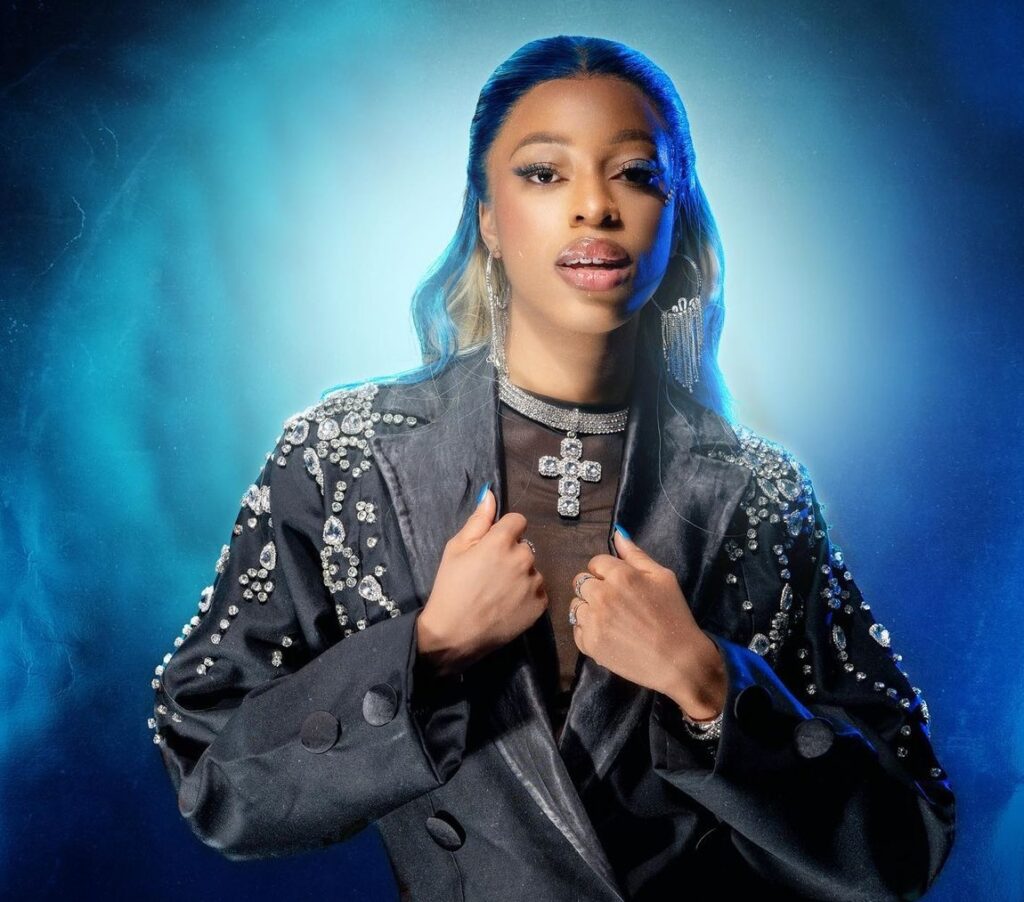
Qing Madi via Instagram
On X (formerly Twitter), Ife Diran, who is also an MBA for Africa alumni, shared her opinion about the album. She called it “weakest and laziest project ever.” She claimed that the songs on the album sounded too similar and lacked creativity. In addition to criticizing the music, Ife Diran took a shot at Qing Madi’s overall style, suggesting that the artist needed a new stylist.
“First off, the person who approved the name of this project after listening to it deserves a knock on the head because kileleyi? This is the weakest and laziest project I’ve ever heard. All the songs sound similar. Not one ounce of creativity. My poor ears, what a horrible way to start my day,” Ife Diran said via X.
“Hian. Qing Madi is definitely not the blueprint, she should eat some humble pie, put her head down, and focus on developing her craft. She has potential, but she’s not there yet. And someone please get her a stylist while she’s at it,” she concluded.
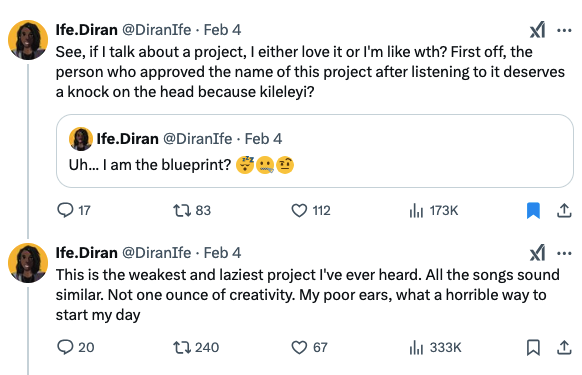
The thread quickly garnered attention, sparking reactions from both fans of Qing Madi and other industry professionals. Many people criticized Ife Diran’s harsh words. They argued that while constructive criticism is necessary in the music industry, the tone of her comments came across as mean-spirited. Several pointed out that Ife could have approached the situation in a way that was more encouraging. They also pointed out that she could’ve offered suggestions for improvement rather than resorting to negative language.
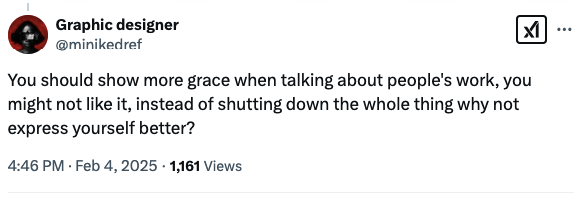
Qing Madi’s supporters took to social media to defend her. They emphasized that artists can explore their sound and vision without facing undue ridicule. Others pointed out that when given thoughtfully, constructive criticism can lead to growth. However, personal attacks are counterproductive and harmful to an artist’s morale.
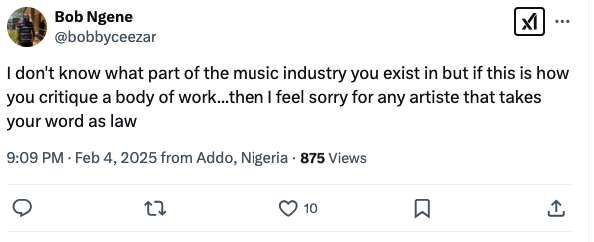
While some spoke out in Qing Madi’s support, others concurred with what Ife Diran said.
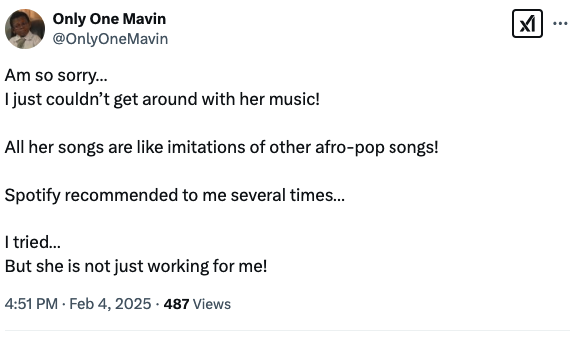
How does this affect other rising artists?
This incident raises the broader issue of how criticism is handled in the public eye. While feedback is essential for growth, the manner in which it is delivered can greatly influence how it is received. In this case, Ife Diran’s comments were seen by many as lacking the nuance that could have helped Qing Madi develop her craft without diminishing her confidence.
As the controversy continues to unfold, it is clear that the public has strong opinions on how talent managers and industry professionals should interact with artists, especially rising ones. While criticism remains a part of the process, there is a growing call for a more supportive and constructive approach to fostering the talents of emerging artists in a competitive industry.
Is Qing Madi really the blueprint?
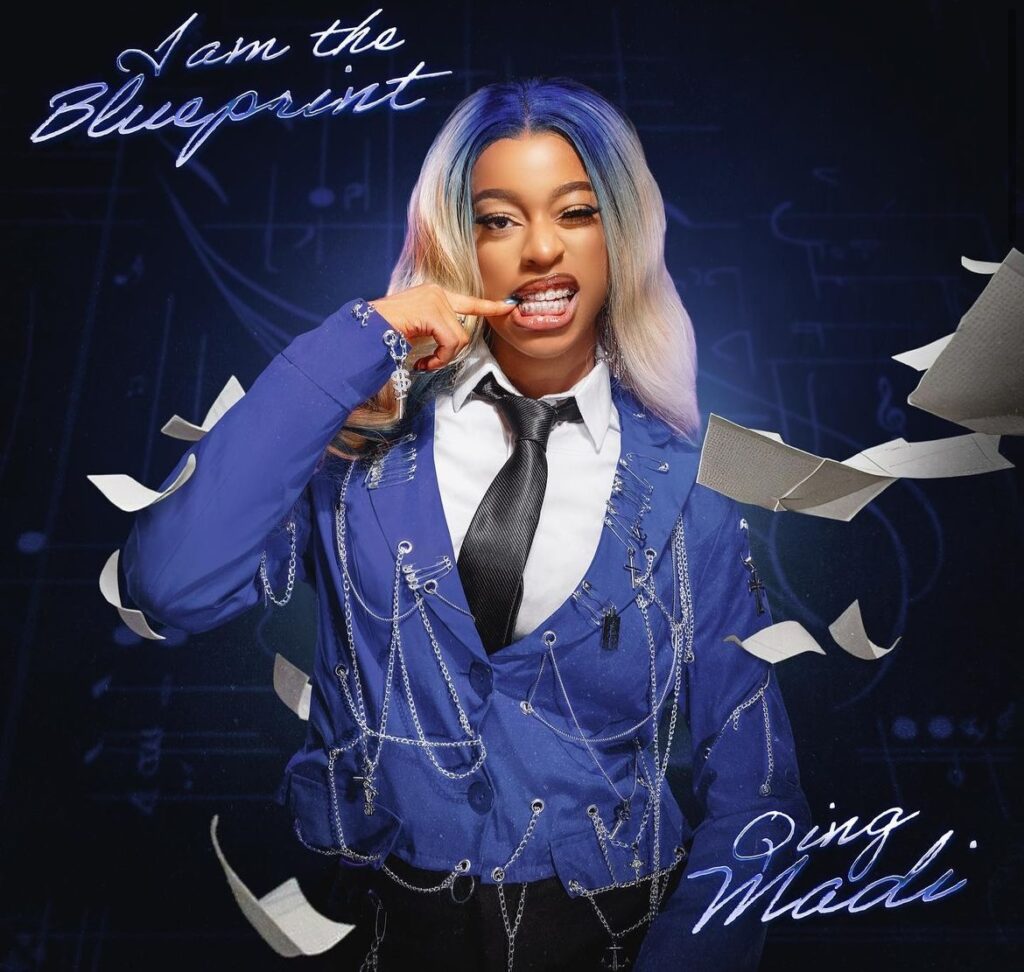
For now, Qing Madi’s album I Am the Blueprint remains the subject of conversation, with many fans eagerly discussing its tracks and what the future holds for the artist. Yes, one can say that the conversation around the album’s reception is about its musical qualities. But, it is also about how the industry handles critique and the responsibility of those with influence to guide rather than tear down.
In the end, whether or not I Am the Blueprint lives up to its name remains subjective. What is clear, however, is that the incident between Qing Madi and Ife Diran serves as a reminder of the delicate balance between critique and encouragement in music.
Despite the backlash, Qing Madi has not directly responded to the controversy. Her fanbase, however, continues to support the album, highlighting its strengths and celebrating her artistic vision. Whether the criticism will influence future projects remains to be seen. Still, one thing is certain: I Am the Blueprint has sparked a conversation that goes beyond music, touching on the dynamics of industry critique and artist development in Nigeria’s entertainment space.



